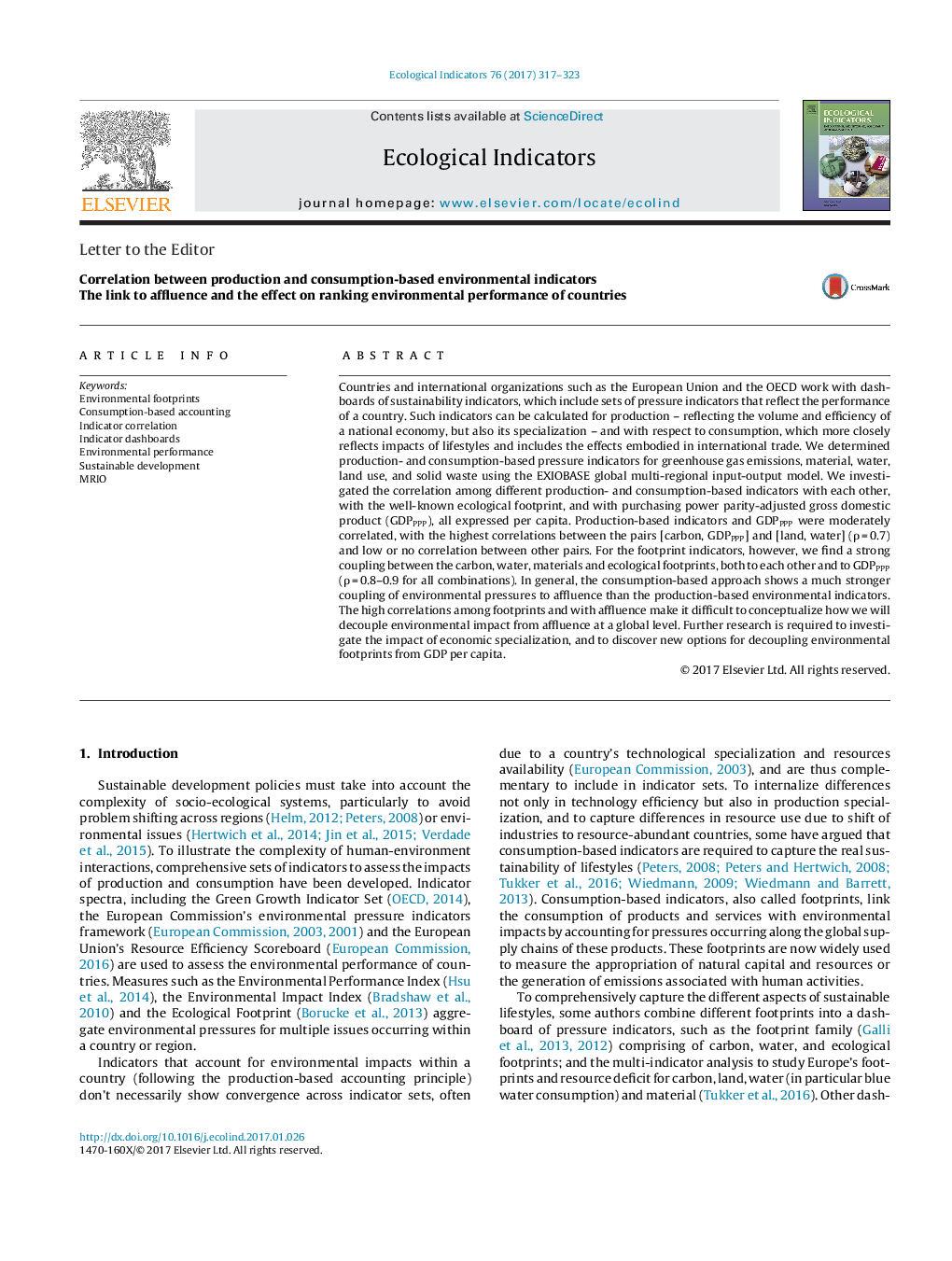| کد مقاله | کد نشریه | سال انتشار | مقاله انگلیسی | نسخه تمام متن |
|---|---|---|---|---|
| 5741695 | 1617126 | 2017 | 7 صفحه PDF | دانلود رایگان |
عنوان انگلیسی مقاله ISI
Correlation between production and consumption-based environmental indicators
ترجمه فارسی عنوان
همبستگی بین شاخص های زیست محیطی تولید و مصرف
دانلود مقاله + سفارش ترجمه
دانلود مقاله ISI انگلیسی
رایگان برای ایرانیان
کلمات کلیدی
موضوعات مرتبط
علوم زیستی و بیوفناوری
علوم کشاورزی و بیولوژیک
بوم شناسی، تکامل، رفتار و سامانه شناسی
چکیده انگلیسی
Countries and international organizations such as the European Union and the OECD work with dashboards of sustainability indicators, which include sets of pressure indicators that reflect the performance of a country. Such indicators can be calculated for production - reflecting the volume and efficiency of a national economy, but also its specialization - and with respect to consumption, which more closely reflects impacts of lifestyles and includes the effects embodied in international trade. We determined production- and consumption-based pressure indicators for greenhouse gas emissions, material, water, land use, and solid waste using the EXIOBASE global multi-regional input-output model. We investigated the correlation among different production- and consumption-based indicators with each other, with the well-known ecological footprint, and with purchasing power parity-adjusted gross domestic product (GDPPPP), all expressed per capita. Production-based indicators and GDPPPP were moderately correlated, with the highest correlations between the pairs [carbon, GDPPPP] and [land, water] (ÏÂ =Â 0.7) and low or no correlation between other pairs. For the footprint indicators, however, we find a strong coupling between the carbon, water, materials and ecological footprints, both to each other and to GDPPPP (ÏÂ =Â 0.8-0.9 for all combinations). In general, the consumption-based approach shows a much stronger coupling of environmental pressures to affluence than the production-based environmental indicators. The high correlations among footprints and with affluence make it difficult to conceptualize how we will decouple environmental impact from affluence at a global level. Further research is required to investigate the impact of economic specialization, and to discover new options for decoupling environmental footprints from GDP per capita.
ناشر
Database: Elsevier - ScienceDirect (ساینس دایرکت)
Journal: Ecological Indicators - Volume 76, May 2017, Pages 317-323
Journal: Ecological Indicators - Volume 76, May 2017, Pages 317-323
نویسندگان
Moana Simas, Stefan Pauliuk, Richard Wood, Edgar G. Hertwich, Konstantin Stadler,
